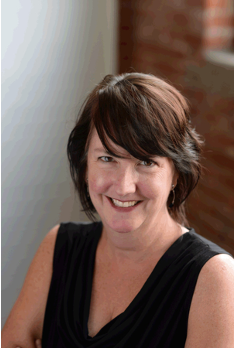7-POINT SAFETY CHECKLIST FOR SECURITY OFFICERS
Debbie Howlett, TrackTik, CALSAGA Network Partner
The pandemic has impacted virtually every industry in the U.S. including the professional security services industry. Since the start of the pandemic, security officers have been on the frontline, providing essential services in difficult circumstances, increasing their occupational risk of COVID-19 exposure due to their frequent interactions with the public as part of their routine duties.
In California, with increased virus transmissions statewide and rising hospitalization numbers in many communities, the governor has recently reintroduced restrictions to slow the transmission. Affected businesses include restaurants, bars, movie theatres, family entertainment centers, gyms and fitness centers, zoos, museums, and more. The state will continue to update and issue guidance based on the best available public health data and the best practices currently employed.
For security services companies, a top priority is keeping their workforce safe, especially those who are routinely in contact with the general public. Here’s a checklist of safety precautions for security officers to help minimize their risk of exposure.
Recommended Security Officer Precautions for Protecting Against COVID-19
- Practice Hand Hygiene. One of the most effective ways for officers to protect themselves is to wash their hands often (optimally every two hours), for at least 20 seconds. Use proper technique, thoroughly scrubbing your palms and backs of your hands. In some locations, however, soap and water may not always be available, so ensuring teams have access to alcohol-based hand sanitizers with greater than 60% ethanol or 70% isopropanol as active ingredients. Avoid touching your eyes, nose, and mouth with your hands to reduce the risk of exposure from contaminated surfaces.
- Provide PPE (personal protection equipment). To ensure the safety of your security teams, it is highly recommended that security services companies provide safety goggles, disposable nitrile gloves, and masks for security officers who are frequently in contact with the public.
- Implement protective measures. Adapt work areas or security stations to limit the spread of the virus. Taking a cue from retail locations, tape can be used to mark a 6-foot distance around security stations or as floor markings to remind people who are standing in line to maintain appropriate distance from the security officer and other people in line. Plexiglas or acrylic glass barriers can also be installed to safeguard employees.
- Disinfect common surfaces often. Although it is unclear how long the virus can last on surfaces, it’s prudent to frequently disinfect common work areas. Use an EPA-approved disinfectant on counter tops that security officers and people may touch.
- Limit close contact with others. Keep a recommended minimum of six feet of distance. When performing patrols, keep as much distance from people as possible.
- Wash uniforms after every shift. After a long patrol shift, especially at locations where officers are in constant contact with the public such as healthcare facilities and grocery stores, washing your uniform and drying it at a high temperature setting will provide an added measure of safety.
- Sanitize your mobile phone. Use an EPA-approved disinfectant or antiviral wipe to disinfect your mobile phone, radio, gear, keyboard, and other equipment to help lower your risk of infection.
It is important that all security officers receive training on the new safety protocols and protective measures that have been implemented in response to COVID-19. Training might include proper use of PPE, and conflict de-escalation strategies and techniques in the event of an encounter with an agitated member of the public. Supervisors should also check in frequently with officers via mobile phone to monitor for any issues and ensure that all COVID-19 related procedures are being followed. Staying current with state/regional and local news alerts on COVID-19 is also highly recommended.
 Debbie is an experienced writer with a demonstrated history of working in the security industry. She is based in Montreal, Canada, with TrackTik—a dynamic and cutting-edge tech company that sells cloud-based security workforce management software.
Debbie is an experienced writer with a demonstrated history of working in the security industry. She is based in Montreal, Canada, with TrackTik—a dynamic and cutting-edge tech company that sells cloud-based security workforce management software.
